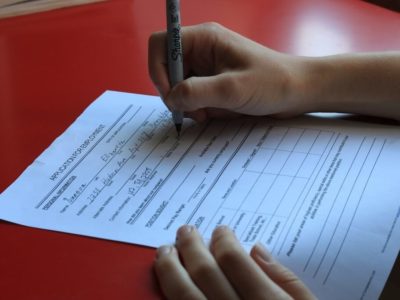It’s your first date…but things aren’t going as well as you thought they would. Your date won’t stop rambling on about her past experiences, achievements and relationships. The outfit she’s wearing mismatches and shows off too much for a first date. You’ve already begun deleting her number on your phone…
My college advisor said it best when she said that a resume is like a first date. You want to impress, but you don’t want to show it all. To make a first date successful, you need to follow a few rules and avoid common mishaps. This applies to resumes and cover letters, too.
Stick to One Page
No, your prospective employer doesn’t need to know that you were president of the comic book club in high school. No, winning the science fair in second grade should not be listed under your achievements. Don’t dump everything in your resume and expect the employer to absorb it all. Keep the important stuff, and if the employer has more questions, he’ll call you. Maybe you can bring up the science fair in the interview, which is when the real selling is done.
Keep It Simple
Unless you’re a designer, you don’t need more than three different fonts, colors or images on your resume. Keep the design elements to a minimum, and try to stay away from the overused templates on Word or Pages; they are too generic.
Avoid Spelling and Grammatical Errors
I can’t stress this enough. How can employers trust you with important tasks when you misspelled a word or misplaced a comma? The job market is tough and competitive out there, and employers will do anything to send out as few callbacks as possible. Edit your resume and ask someone else to scan it for you. Your school’s career services center would be happy to fix any errors that they see.
Personalize Your Cover Letter
Your cover letter is your pitch, the first impression, to your prospective employer. Let the employer know that you’ve done your research on the job or internship, and use the cover letter to show that you want to work for that one brand. Incorporate some values that the company stresses in your cover letter and describe why you fit the specific job description. Trust me: the employer will be impressed by your cover letter.
Describe Past Jobs and Activities
Don’t automatically assume that those reading your resume will understand what you did in the organization or company. The employer will not want to do the research and look it up. If the job is relatively unknown, summarize it and describe what you did in a sentence or two.
Make Sure You Qualify
Before you send out emails or applications to an employer, check with your university that you can receive official credit. It’s embarrassing when, in the end, you can’t accept the internship because you didn’t bother to check-up on the requirement.
Best of luck on that first date, College Magazine readers!



















